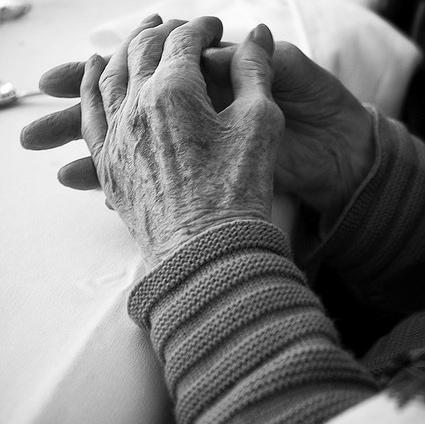
One in 12 American older people regularly go hungry, according to a new study. Researchers at University of Illinois and the University of Kentucky used data from the National Health and Nutrition Examination Survey (NHANES). The report also shows that seniors who go hungry also face negative health and nutrition consequences.
“In 2011, 8.35 percent of Americans over age 60 faced the threat of hunger—that translates to 4.8 million people,” said Craig Gundersen, Ph.D., a professor in agricultural strategy in the Department of Agricultural and Consumer Economics. Gunderson added that hunger results in reduced consumption of calories, vitamins and other nutrients, which puts seniors at risk for many adverse conditions and diseases. “Seniors who are food insecure reported higher incidence of diabetes, high cholesterol, high blood pressure, heart attack, gum disease, and a host of other health problems than adults their age who are food secure,” Gundersen said. “In addition, food-insecure seniors have worse general health outcomes, more daily activity limitations and are more likely to suffer from depression.”
The study authors also found that food insecurity rates where three times as high for seniors when there were grandchildren in the household, which may be because the seniors reduced their food intake to leave more food for the children. Gundersen recommends that policy makers work to include more seniors in the Supplemental Nutrition Assistance Program, formerly known as the Food Stamp program.
The research was published as a special report, “Food Insecurity and Health among Senior for the organizations Feeding America and the National Foundation to End Senior Hunger in 2014,” by Craig G. Gundersen from the University of Illinois and James P. Ziliak of the University of Kentucky Center for Poverty Research.





